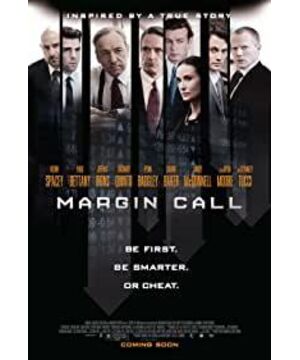For investment banks, risk control is always an awkward position. How much risk a trader has in each order, his supervisor doesn't really know at all, what kind of mathematical model the analysts use, what kind of analysis method, and more senior managers don't know at all, what they need It's just profit. As repeatedly emphasized in the film, executives always ask their subordinates not to explain technical details to them, but to give the simplest conclusions. Under this premise, as long as the product is profitable, the details are secondary.
Such rough management is actually a major drawback of risk control. The huge differences in the incentives of risk control and trading departments have also led to the problem of differences in motivation between job types. The product trading model is always at the forefront of innovation, while risk control tools cannot keep up. In terms of process, risk control also has a certain lag, resulting in large or small crises always lurking. Excessive reliance on statistical models and easy ignoring of too many conditional assumptions has become a potential risk in the investment banking field. As the direct cause of the crisis, MBS has such a high rate of return and has such a long period of time. Anyone with a little brain will soon find that this thing is impossible to continue. And the reason why many investment banks still do this without quitting early can only show that luck is always in the middle of it, and they always want to get a little bit more when they can still get a piece of the pie. The high mobility of talents and the incentive mechanism in the investment banking field may be a very important reason for this. The contradiction between its own internal checks and balances and its own profit pursuit has also become a major difficulty in balancing the reform of the financial system.
To simply blame greed for the woes of the financial industry is obviously too superficial. The financial industry has indeed brought great benefits to the world, and the effects are so pervasive that people take their own benefits for granted. When he has a problem, the situation must be complicated. He exposes all aspects of the problem. It is obviously unfair to simply blame the financial practitioners. In business wars, survival is always the premise in any situation. A certain investment bank described in the film tried to pass on the losses completely on the basis of seemingly violating business ethics, and slipped away quietly, which is obviously the inevitable law of the company's survival. There is no righteousness to speak of here. Of course, the market is fair, and the losses that they can recover are bound to be limited. The company and its employees who have abandoned their credit will also be abandoned by the market. The only thing waiting for them is to get their last stimulus and then quit. Then another batch of newcomers was waiting at another company.
The financial market is a huge jungle, with killings and victories, and it is also the hope of people that he can continue to evolve and improve like a living creature. After all, no one wants to leave him.
View more about Margin Call reviews











